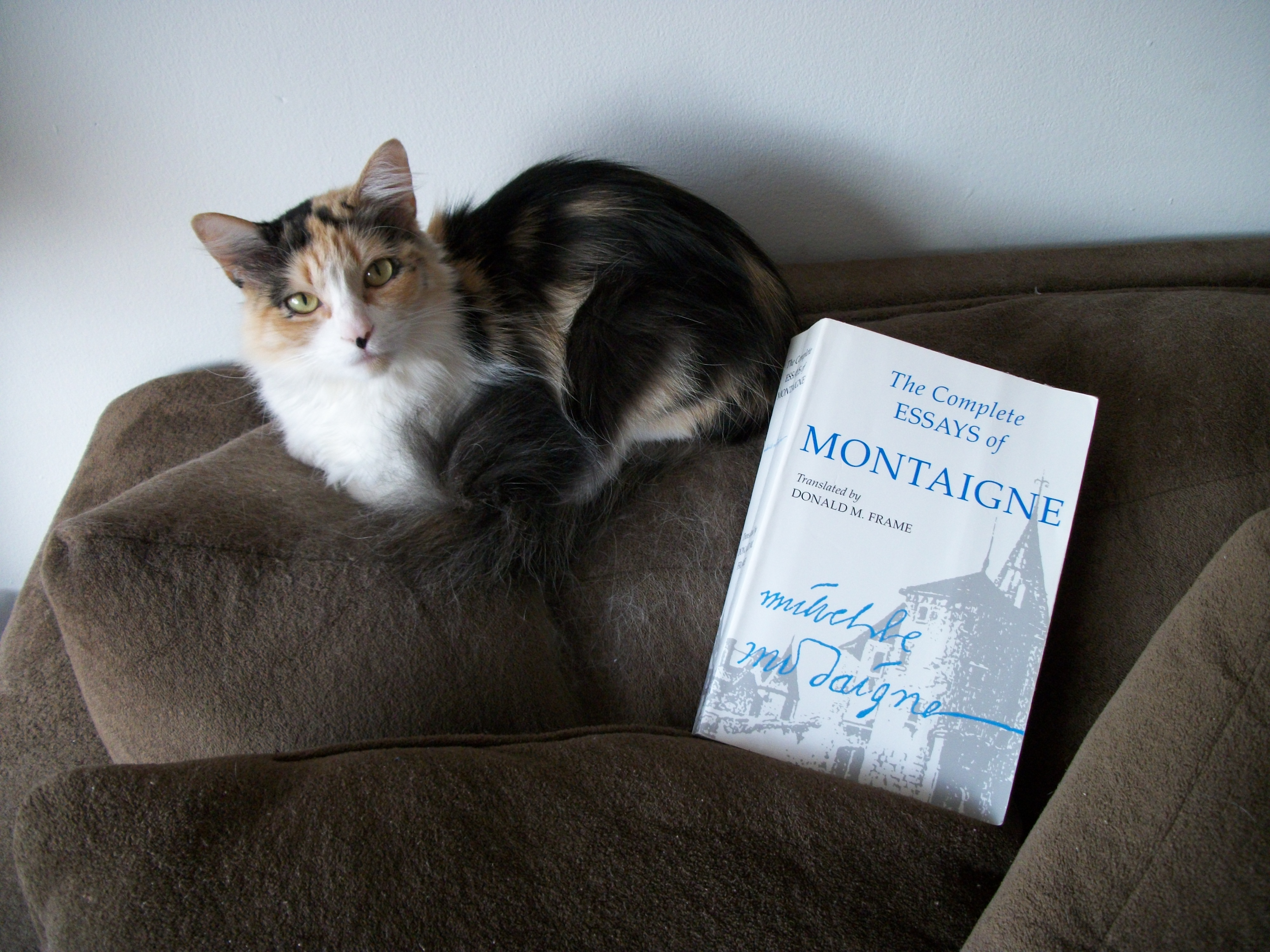
What Classes Will I Take?
[flickr id=”8722112154″ thumbnail=”medium” overlay=”true” size=”original” group=”” align=”center”]
That’s my cat, Sassy. And that’s Montaigne, who you will read and get very familiar with, during your first semester at Columbia, in the History of the Essay Class. You accepted Columbia’s offer and you’re excited to start taking classes next fall. And, you should be! One of the questions I’m often asked is: What kind of classes does the Creative Writing – Nonfiction MFA program offer? The basic answer is this:
You will take the following courses:
- 4 Graduate Nonfiction Workshops (usually two sections offered with different faculty each semester)
- History of the Essay
- 2 Sections of Form & Theory (rotating topics each semester)
- 2 Sections of Topics in Nonfiction (again, rotating topics)
- 2 Graduate Literature Classes (rotating topics)
- 2 Electives
- 1 Thesis Development Workshop
- 6 Credit Hours of Thesis Hours with the advisor of your choosing
[flickr id=”8720995185″ thumbnail=”medium_640″ overlay=”false” size=”original” group=”” align=”center”]
That’s the basic structure. Within each course requirement, you will usually have two options each semester to choose from. For example, one semester the Graduate Literature Courses that were offered were Marginalia: Otherness in Verse and a Latino/Latina Novel class. Another semester I had the option of taking a Topics in Nonfiction Film Essay course or Topics in Nonfiction – The Political Essay. Each semester you will take 9 credits, with the exception of the last semester which is just Thesis Hours. You will take a Graduate Workshop every semester, and some combo of Elective/Form and Theory/Graduate Literature Seminar/Topics in Nonfiction.
[flickr id=”8722111444″ thumbnail=”medium” overlay=”false” size=”original” group=”” align=”center”]
For context, I thought it might be interesting to see a list of all of the classes I took, so that you can get a sense of what your schedule might look like each semester and an idea of the courses offered. Another thing to note is that everyone takes a Graduate Workshop and History of the Essay during their first semester. If you want to be a Graduate Student Instructor, you also take Composition Theory and Praxis during your first semester, and it is counted toward Elective credit.
Fall 2010
- History of the Essay
- Composition Theory and Praxis (Elective)
- Graduate Workshop w/ Jenny Boully
Spring 2011
- Graduate Nonfiction Workshop w/ David Lazar
- Graduate Poetry Workshop (Elective)
- Topics in Nonfiction: Poets Writing Prose
Fall 2011
- Graduate Nonfiction Workshop w/ Aviya Kushner
- Graduate Literature Seminar: Postcolonial Literature
- Form & Theory of Nonfiction
Spring 2012
- Graduate Nonfiction workshop w/ David Lazar
- Graduate Literature Seminar: Marginalia: Otherness in Verse
- Topics in Nonfiction: The Political Essay
Fall 2012
- Thesis Development Workshop
- Form and Theory of Nonfiction: A Poet’s Prose
- Thesis Hours w/ Jenny Boully
Spring 2013
- Thesis Hours with Jenny Boully
[flickr id=”8722113464″ thumbnail=”medium” overlay=”false” size=”original” group=”” align=”center”]
I am happy with the courses I took, but I think that it is important to say this: You may not always get your first choice or have a choice between two classes that you are absolutely dying to take, but that’s okay! I was surprised by some of the classes I took and how the information that I learned transformed my writing or made its way into my teaching practices. If you don’t get your first choice, you might be pleasantly surprised, and in the true spirit of the essay, of writing, this time is about exploration, about trying on new topics, voices, formal choices. So, if you can, treat your course selections like an essay–a way to explore what you don’t know by inviting the unexpected turn. Take the unexpected turn. My guess is, you won’t regret it.
